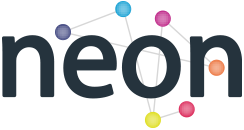NEON Working Group – Addressing Differential Outcomes for Diverse Learners
Date
30/10/2024
Time
2:00 pm - 3:30 pm
NEON Working Group
Addressing Differential Outcomes for Diverse Learners
Workshop
Workshop Title: Teaching as Story-telling: Using Student-Led Narrative Teaching Techniques to Disrupt, Decentre and Inspire
Wednesday 30th October 2024, 2-3.30 (online via MS Teams)
This working group serves to provide a space for addressing the challenges of establishing better outcomes for ethnically diverse learners in Higher Education and explores innovative approaches to developing good practice in this area by way of practical discussions, research/case study analysis, and peer support.
14.00-14.10 Welcome and Introductions (Karen Lipsedge, Kingston University, Chair)
14.10-14.40: Dr Adam James Smith, Associate Professor of English Literature at York St John University
Abstract:
At this workshop Adam will share his experiences of teaching across a range of modules, many of which involve engage with eighteenth-century texts. By drawing on strategies such as pre-module questionnaires and a ‘story not survey’ approach, Adam will focus on his development of a student-centred, narrative approach to module design and week-to-week teaching, which has bolstered retention and increased both attainment and enthusiasm. Many of Adam’s examples will be drawn from his experience teaching English Literature and Liberal Arts and Foundation Year, Undergraduate and Postgraduate Level. Nevertheless, as Adam will demonstrate, the techniques adopted are applicable to any discipline and can have a significant, beneficial impact to students’ learning experience and outcomes.
This will be an interactive workshop, and it will invite to participants to reflect on their own examples of adopting a student rather than University or Lecturer-centred approach to module design and teaching and learning, the impact of such an approach and any challenges they may have faced.
Short bio:
Dr Adam James Smith is an Associate Professor of Eighteenth-Century Literature at York St John University, where he is also Course Lead for English Literature and Co-Director of the York Research Unit for the Study of Satire. He is a Senior Fellow of the Higher Education Academy and sits on the York St John University Teaching Senate. Adam’s research centres on the roles played by cheap print in mediating relationships between citizen and state in the long eighteenth century, with a particular emphasis on protest and satire. He is Chief Editor of Criticks, the online reviews hub for the British Society for Eighteenth-Century Studies, Eighteenth-Century Section Co-Editor for the Literature Compass journal and an editor on the People of Print series at Cambridge University Press.
14.40-15.00 Breakout groups
The breakout session provides colleagues with the opportunity to come together to discuss the project and how they could incorporate and develop the strategies provided at their institution. In your discussions, please consider the following topics:
- Thinking about your own experience, either as a teacher or a subject, how aware have you been of the “stories” implicit in pedagogy. You may want to think about this at a macro level, as in, the design of a whole module, or a micro level, as in, with reference to specific classes or even activities.
- We may not talk about what we do as “storytelling”, but in your own subject, discipline or role, can you identify any instances where you are required (or perhaps choose) to convey information in a narrative form?
- Do you think there might be a value to asking students you might teach to complete a pre-module survey before teaching begins? What might you do with the information you receive?
- What do you think about the suggestions that effective storytelling in pedagogy might be connected to higher engagement and retention?
- Are there any aspects of today’s discussion that you adapt or apply in your own practices and/or share with your networks?
15.00-15.15: Feedback and Q&A
15.15-15.30: AOB and next meeting
